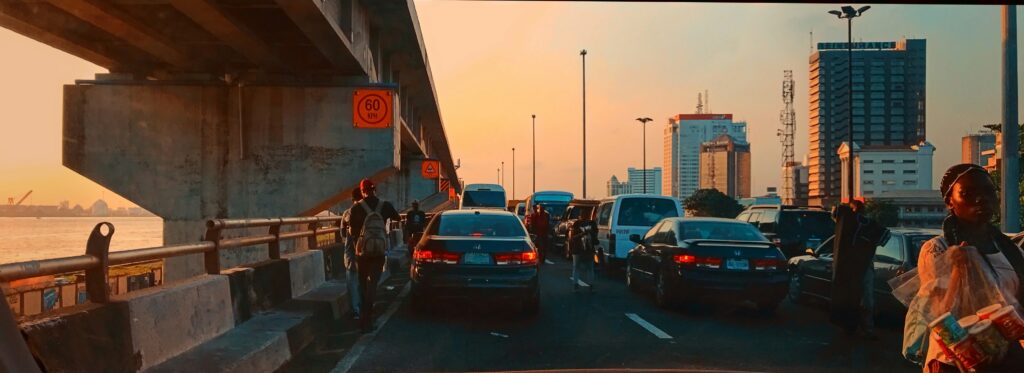
Photo by Obinna Okerekeocha on Unsplash
There are two kinds of Lagosians: those who plan their day around traffic and those who pretend it will be different this time. I used to be the second type. Every morning, I would look at the sky, check the clock, and convince myself that if I left ten minutes earlier, the road would be clear. It never was.
Lagos traffic has a personality of its own. It wakes up early, gets louder through the day, and refuses to sleep. It is unpredictable and strangely consistent at the same time. No matter how fast new roads appear or how many traffic officers line the junctions, the queues always find a way to come back.
The rhythm of congestion
If you have ever sat on Third Mainland Bridge at 7 a.m., you know the rhythm: start, stop, crawl, accelerate for five seconds, brake. Repeat. The city moves like a giant heartbeat, pulsing through narrow roads that were never designed for the number of cars we have now.
For every lane added, ten new vehicles seem to appear. People buy more cars because public transport feels unreliable. Buses are crowded, okadas are restricted, and even carpooling feels like a risk after the pandemic. So everyone drives, and we all end up stuck together.
Where design meets behavior
I sometimes see the city differently. When I sit in traffic, I notice where lanes merge too sharply or where signals fail to hold rhythm. But I also see how people move: the shortcuts, the wrong turns, the quick swerve into oncoming lanes when impatience wins over order.
The truth is that congestion in Lagos is not just a design problem. It is a behavior problem, a planning problem, and sometimes, a patience problem. Roads are mirrors. They reflect how we live, how we plan, and how we wait.
The lost hours
Ask anyone in Lagos about time, and you will hear stories measured in traffic. Parents who leave home before sunrise so their children can reach school on time. Workers who sleep in the car, music low, eyes heavy from the wait. Traders who sell water between lanes because standing still is part of the business.
Traffic has become a shared language. You can meet a stranger, sigh, and say, “Ah, the road was bad today,” and they will nod like you just shared a secret.
Hope in small things
Still, there are moments of progress. The BRT buses have improved the flow in some corridors. Some junctions now use better signal coordination. New bridges ease pressure in a few key routes. But true change will not come from concrete alone. It will come from trust, people trusting that if they follow the rules, the system will work.
Until then, we wait. We plan around the queues. We learn to breathe through the horns and still find small peace in the chaos. Because in Lagos, traffic is not just a condition. It is a way of life, a patience test that every commuter must learn to pass.
